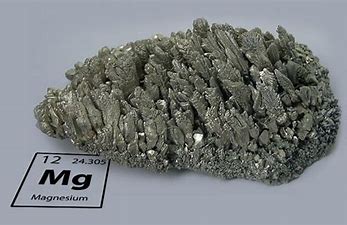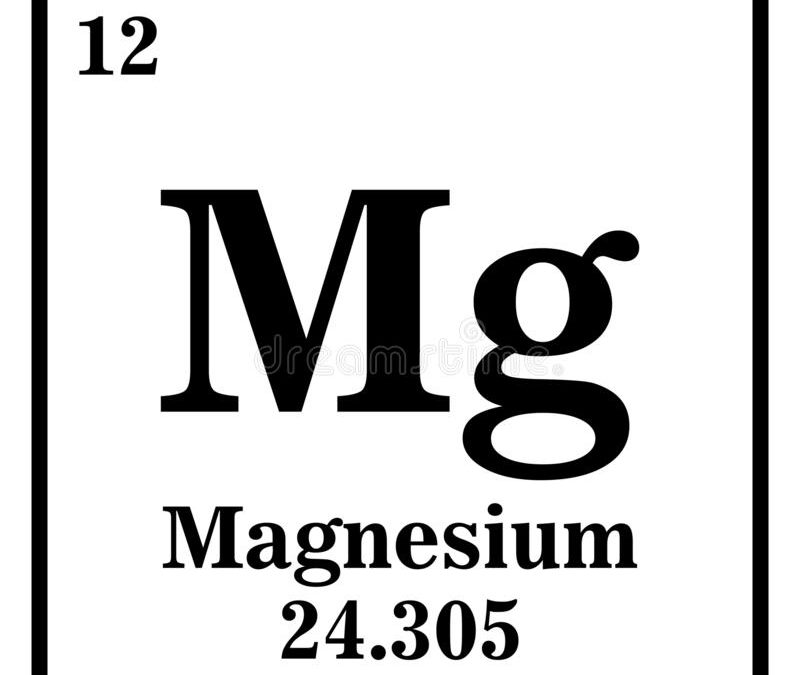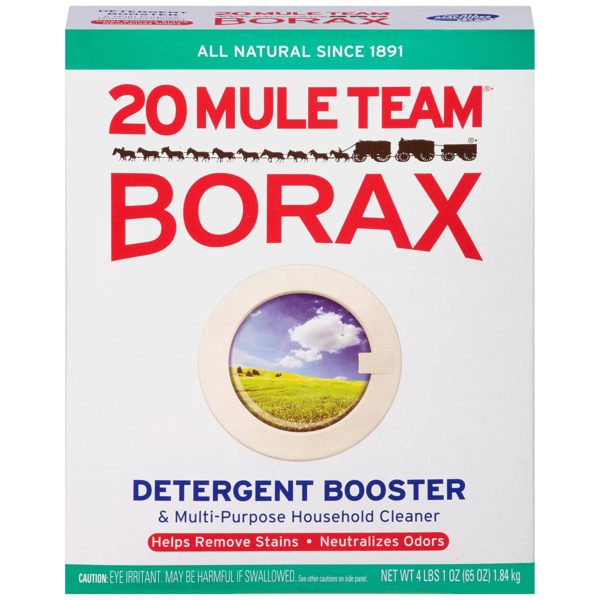There is a lot of discussion about which is the best form of magnesium. Experts will often have conflicting viewpoints on this subject so what should we buy? Why buy one form of magnesium when you can purchase magnesium brands with complex formulations? What is the most effective form of magnesium to take as a supplement? This article and list of recommendations will take the guesswork out of this question once and for all! Read on!

My Top Pick – About this item
Organixx: Magnesium 7 – High Absorption Daily Stress Relief and Sleep Supplement with 7 Chelated Forms – 60 Capsules – Includes Vitamin B6 and Manganese Citrate – Vegan, Non-GMO – Made in The USA

Top 10 Magnesium Brands with Complex Formulations
Magnesium Brands with Multiple Forms and Maximum Absorption










As a society, we are woefully deficient in Magnesium. You may already know this or have heard about this phenomenon, but the initial question is why?
Poor soil quality, gmo food, toxic air, water, out of whack PH, pesticides, aluminum and it goes on and on. This is a sad fact, and we aren’t going to get into the weeds on this subject. You can research it all over the internet and you probably know this and why you are here looking for magnesium!
I was unaware for years about the delivery systems for vitamins and minerals until fairly recently. Maybe you are wondering what this means. I am referring to the additive carrier that delivers the main ingredient. You are probably familiar with what I am saying when you think about all the types of vitamins.
Magnesium is no different but there are ten different delivery adjuvants or carriers that deliver the payload! Citrate, oxide, chloride, lactate, malate, taurate, l-threonate, sulfate, glycinate, and orotate! Wow, so what’s the difference? I thought magnesium was magnesium.
Various Types of Magnesium
1. Magnesium oxide
Magnesium oxide is a salt that combines magnesium with oxygen.
This type isn’t typically used to treat magnesium deficiencies, as it’s poorly absorbed by your digestive tract.
It’s more frequently used for short-term relief of digestive issues such as heartburn, indigestion, and constipation. It may also be used to treat migraine headaches.
SUMMARY
Magnesium oxide is sometimes used to relieve digestive issues and migraines. It isn’t a good choice for those who need to raise their magnesium levels.
2. Magnesium citrate
Magnesium citrate is a form of magnesium that’s bound with citric acid.
This acid is found naturally in citrus fruits and gives them their tart flavor. Artificially produced citric acid is often used as a preservative and flavor enhancer in the food industry.
Magnesium citrate is one of the most common magnesium formulations and can be easily purchased online or in stores.
There is research that suggests this type of magnesium is among the more bioavailable forms of magnesium, or more easily absorbed in your digestive tract than other forms. Due to its natural laxative effect, it’s also used at higher doses to treat constipation.
It’s also marketed as a calming agent to help relieve symptoms associated with depression and anxiety.
SUMMARY
Magnesium citrate is one of the most popular types of magnesium supplements and easily absorbed by your body. It’s mainly used to raise magnesium levels and treat constipation.
3. Magnesium lactate
Magnesium lactate is the salt formed when magnesium binds with lactic acid.
This acid is not only produced by your muscle and blood cells but also manufactured for use as a preservative and flavoring agent.
Magnesium lactate is well absorbed and may be gentler on your digestive system than other types. This is significant for people who require large doses of magnesium regularly or don’t tolerate other forms well.
In a study in 28 people with a rare condition that required high doses of magnesium daily, those who took a slow-release tablet of magnesium lactate had fewer digestive side effects than the control group. This form may help treat stress and anxiety.
SUMMARY
Magnesium lactate is effective as a dietary supplement and gentler on the digestive system. It may be better suited for those who don’t tolerate other forms or need to take large doses.
4. Magnesium chloride
Magnesium chloride is a magnesium salt that includes chlorine that binds with other elements such as sodium and magnesium, to form salts.
It is well absorbed and used to treat low magnesium levels, heartburn, and constipation.
Magnesium chloride is most frequently taken in capsule or tablet form but is also available in topical lotions and ointments often for sore muscles and relaxation.
SUMMARY
Magnesium chloride is well absorbed orally and used to treat heartburn, constipation, and low magnesium levels. Also, applying it topically may help relieve muscle soreness but will not boost magnesium levels.
5. Magnesium malate
Magnesium malate contains malic acid, a naturally occurring substance in foods like fruit and wine. This acid has a sour taste and used as a food additive to enhance flavor or add acidic properties.
Research suggests that it is very well absorbed in your digestive tract making it a good option for replenishing your magnesium levels.
Magnesium malate may gentler on your system and have less of a laxative effect than other types.
Magnesium malate is often recommended as a treatment for symptoms associated with fibromyalgia and chronic fatigue syndrome.
SUMMARY
Magnesium malate is easily absorbed and may have less of a laxative effect than other forms. It’s often recommended for chronic conditions like fibromyalgia.
6. Magnesium taurate
Magnesium taurate contains the amino acid taurine. This form has research showing it has a positive effect on regulating blood sugar and promoting healthy blood sugar levels.
Magnesium taurate also supports healthy blood pressure.
SUMMARY
Magnesium taurate is likely the best form for managing high blood sugar and high blood pressure.
7. Magnesium L-threonate
Magnesium L-threonate is the salt formed from mixing magnesium and threonic acid, a water-soluble substance derived from the metabolic breakdown of this combination.
Animal research shows that it may be the most effective type for increasing magnesium levels in brain cells.
Magnesium L-threonate is often used to help manage certain brain disorders such as depression and age-related memory loss.
SUMMARY
Magnesium L-threonate may support brain health in the treatment of disorders such as depression and memory loss.
8. Magnesium sulfate
Magnesium sulfate is formed by combining magnesium, sulfur, and oxygen and is commonly referred to as Epsom salt.
Magnesium sulfate can be consumed as a treatment for constipation when mixed with water.
Magnesium sulfate is frequently dissolved in bathwater to soothe sore, achy muscles and relieve stress, and often included in skin care products, such as lotion or body oil.
This form is not very well absorbed through your skin but can be beneficial.
SUMMARY
Magnesium sulfate, or Epsom salt, is frequently dissolved in water to treat stress and sore muscles.
9. Magnesium glycinate
Magnesium glycinate is formed from elemental magnesium and the amino acid glycine.
Your body employs this amino acid in protein construction. It also occurs in many protein-rich foods, such as fish, meat, dairy, and legumes.
Glycine is often used as a standalone dietary supplement to improve sleep and treat a variety of inflammatory conditions, including heart disease and diabetes.
Magnesium glycinate is easily absorbed and may have calming properties. It may help reduce anxiety, depression, stress, and insomnia. Glycine is a wonderful amino acid and why this form is one of the top choices.
SUMMARY
Magnesium glycinate is used for its calming effects to treat anxiety, depression, and insomnia.
Magnesium orotate includes orotic acid, a natural substance involved in your body’s construction of genetic material, including DNA. Orotic acid was originally named vitamin B13!
This form is easily absorbed and research indicates that orotate can boost the absorption of other nutrients
Research suggests that it may promote heart health due to orotic acid’s unique role in the energy production pathways in your heart and blood vessel tissue.
This form is popular among competitive athletes and fitness enthusiasts, but it may also aid people with heart disease.
One study with severe congestive heart failure patients found that magnesium orotate supplementation was significantly more effective for symptom management and survival than a placebo.
This form is significantly more expensive than other magnesium supplements.
SUMMARY
Magnesium orotate may improve heart health by increasing energy production in your heart and blood vessel tissue.
Should you take a magnesium supplement?
Magnesium is present in several foods, including:
- Legumes: black beans, edamame
- Vegetables: spinach, kale, avocado
- Nuts: almonds, peanuts, cashews
- Whole grains: oatmeal, whole wheat
- Others: dark chocolate
Unless you consume a lot of vegetables, you are likely to be deficient in magnesium!
Certain populations may be at a greater risk of deficiency, including older adults and people with type 2 diabetes, digestive disorders, and alcohol dependence.
Dosage and possible side effects
The average recommended daily amount of magnesium is 320 mg for women and 420 mg for men.
The amounts in different supplement formulations may vary, so check the label to ensure you’re taking the most appropriate dose.
Because supplements aren’t regulated in certain countries, including the United States, look for products tested by a third party, such as USP, ConsumerLab, or NSF International.
Magnesium supplements are generally considered safe for most people. Once you’ve reached adequate levels, your body will excrete any excess in your urine.
However, certain forms or excessive doses may cause mild symptoms like diarrhea or upset stomach.
Although rare, magnesium toxicity can occur. If you have kidney disease or consume very large doses of this mineral, you may be at a greater risk. Signs of toxicity include nausea, vomiting, diarrhea, muscle weakness, irregular breathing, lethargy, and urinary retention.
SUMMARY
Adults need a minimum of 320–420 mg of magnesium per day. If you’re unable to meet your needs from your diet, a supplement may be warranted. I believe this to be low unless you are a voracious greens eater. Remember, the side effects if you mega-dose are mild. I have been taking 1500 mg per day and feel great at almost 70 yrs. of age! Age is a factor so go slow and you may not need nearly what I take especially if you are a younger adult.
Don’t waste your money on cheap magnesium oxide and others and get one of the complex formulations.
The bottom line
Magnesium plays a vital role in human health. Low levels are linked to numerous adverse effects, including depression, heart disease, and diabetes.
As such, you may want to consider supplements if you’re not getting enough of this mineral in your diet.
So, hopefully you learned something about how different forms of magnesium have varying absorption and delivery to our bodies. Maybe you are like me and ask, why all the variables? Presumably cost and profits are a main reason for manufacturers to consider. Unsuspecting fools like myself a few years ago might choose a low cost version thinking that once again, magnesium is magnesium right? Well, we just learned that isn’t so!
OK, so the more knowledgeable people may buy the most expensive version thinking that it must be better than the $5 bottle of oxide. They would probably be right but I also have gone down this path.
Maybe you are like me and have genetic mutations like mthfr and dvr or vitamin d receptor mutation. I think once you discover these gene mutations through DNA testing, you may find more and more. They are quite common and most people are not aware that they have them!
I have such severe dvr vitamin D mutation that if I don’t get both uvb rays and supplement, I will quickly revert back to bone pain, arthritis and severe back pain. I take 50k IU of D per day and lay out in midday sun for at least 30 minutes. If I stick to this regimen, I feel great with no hip and back pain! If I go off this routine, within a couple of weeks, I am hurting.
My point is that I also think that I have magnesium absorption issues. I have had heart palpitations, chronic fatigue symptoms and several other issues tied to magnesium deficiency over recent years. I also found out through vitamindwiki.com that magnesium regulates vitamin D by boosting absorption if low and capping it if very high.
I had been trying various types of the magnesium forms listed above in the RDA quantity of around 400mg per day. There was very little effect in spite of taking both the external salt oil and capsules. We are always warned of taking too much, even though I take nearly 100 times the RDA of D, for some reason I was sticking to the RDA on magnesium/
Between taking one to two forms of magnesium at a time, I believe that this limitation combined with low dose was the reason for no improvement. Don’t get me wrong, I am not a doctor so check with yours first.
One day when I was searching for a new supply of magnesium, I ran across magnesium brands with complex formulations. I found versions with 3, 4 5 or more types of magnesium in one bottle! This piqued my interest in that it made perfect sense to combine several formulations in one! It’s the Swiss Cheese approach of taking a variety of attacks on something in case one or two slip through the holes!
The beautiful thing is that the costs were nearly the same and in some cases lower than one type of magnesium alone! The complex formulations method is the way to go in my humble opinion.
BTW, One of my favorites listed in my selections has an interesting dose recommendation. At 500mg per capsule, I assumed the directions would be to take one capsule a day. The directions said to take up to 3 capsules per day and of course to check with your doctor! That is far more than the RDA suggests at over 3 times!
Guess what? I began taking 3 capsules per day and have not changed doses on other supplements and can actually feel the difference! My sleep cycle is back, my energy during the day is much better and I feel calm yet alert and very well!
I truly believe it is both the complex formulations of magnesium and the increased dose that is making a huge difference!
Check out the magnesium brands with complex formulations on this page. These are the best and I have used several of them and will never go back to single type magnesium supplements! Try one or more out and you will never go back either!
BTW – The minimum is three forms all the way to seven in my selections so you will get a great mix from any of them!
Learn about orotic acid and its benefits
Institute of mineral research study on magnesium








